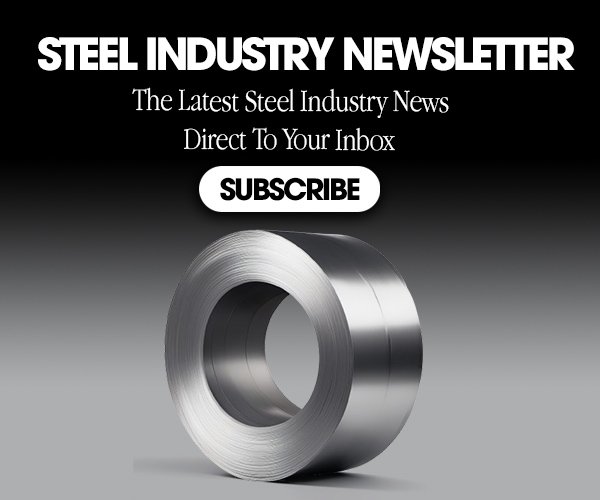President Donald Trump has directed the Committee on Foreign Investment in the United States (CFIUS) to conduct a new review of Nippon Steel’s blocked $14.1 billion bid to acquire US Steel, potentially breathing new life into a deal previously rejected by the Biden administration. This significant development, announced on April 7, 2025, has sent US Steel’s stock soaring over 13% as investors interpret this move as a signal that the Trump administration might be open to approving the contentious merger. The presidential memorandum gives CFIUS 45 days to submit recommendations on whether the Japanese steelmaker’s acquisition poses national security risks and if any proposed mitigation measures would be sufficient to address previous concerns. This comprehensive review represents a pivotal moment for the American steel industry, international trade relations, and could significantly impact the future of manufacturing in the United States.
The Evolution of the Nippon Steel-US Steel Deal
US Steel Corporation, founded in 1901 by industrial titans Andrew Carnegie, J.P. Morgan, and Charles Schwab, has long stood as an iconic symbol of American manufacturing prowess. At its peak in the early 20th century, US Steel achieved the distinction of becoming the first company in world history to reach a market capitalization exceeding $1 billion and produced over two-thirds of all steel in the United States3. However, the company’s fortunes have significantly declined in recent decades, with financial records showing profitability in only six of the last fifteen years of operation3. This prolonged struggle made US Steel vulnerable to acquisition attempts, setting the stage for the current situation.
The journey toward the current Nippon Steel bid began in August 2023 when US Steel rejected a $7.3 billion offer from industry competitor Cleveland-Cliffs, which proposed a combination of cash and stock3. This initial offer triggered a bidding process that culminated in Nippon Steel’s all-cash offer of $14.1 billion, representing a remarkable 142% premium on US Steel’s stock price just prior to the Cleveland-Cliffs bid3. As part of this comprehensive deal, the Japanese steel producer also agreed to assume approximately $800 million of US Steel’s existing debt obligations, bringing the total acquisition value to $14.9 billion3. The market’s initial reaction to this proposal was overwhelmingly positive, with US Steel’s stock surging 26% following the announcement3.
Beyond the purely financial aspects, Nippon Steel has made significant commitments designed to address potential concerns about foreign ownership of this historic American company. The Japanese steelmaker pledged to honor existing agreements with the United Steelworkers union (USW) and committed to investing an additional $1.4 billion in US Steel facilities—representing a 40% increase from current investment plans3. In a symbolic gesture acknowledging the company’s historical importance, Nippon Steel also promised to maintain the iconic US Steel name and relocate its U.S. headquarters from Houston to Pittsburgh, where US Steel is based3. These commitments reflect a strategic effort to position the acquisition as beneficial for both shareholders and workers while preserving the company’s American heritage.
The Blocked Deal and Legal Challenge
The promising merger hit a significant roadblock in January 2025 when then-President Biden issued an executive order blocking the sale, citing national security concerns2. This decision followed a recommendation from CFIUS, the interagency committee responsible for reviewing foreign investments for potential security threats1. The blockage represented a major setback for both companies, which had announced their merger plan in December 2023 and had been working toward completion2.
In response to Biden’s decision, Nippon Steel and US Steel took the unusual step of filing a lawsuit challenging the CFIUS determination1. Their legal argument centered on the claim that the CFIUS screening process and subsequent recommendation had been improperly influenced by President Biden2. The companies alleged that Biden’s actions were politically motivated, aimed at securing support from the United Steelworkers union in Pennsylvania—a crucial battleground state in the presidential election1. This legal challenge represented a significant escalation in the companies’ determination to complete the merger despite government opposition.
Trump’s Intervention and CFIUS Review Process
President Trump’s April 7 memorandum marks a potentially pivotal turn in the acquisition saga. The document directs CFIUS to conduct a fresh review of Nippon Steel’s proposal “to assist me in determining whether further action in this matter may be appropriate”1. This new examination will be carried out by the current committee members, including Commerce Secretary Howard Lutnick and Secretary of State Marco Rubio, who have been instructed to submit their recommendation to the President within 45 days2. The memorandum specifically requests that the committee assess whether any measures proposed by the Japanese and American steelmakers would be “sufficient to mitigate any national security risks” previously identified during the Biden administration’s review2.
This development follows recent diplomatic engagement between the companies and the administration. Notably, Nippon Steel Vice Chairman Takahiro Mori held discussions with Commerce Secretary Lutnick last week, during which he promised to increase the Japanese company’s investment in US Steel facilities2. These discussions suggest an ongoing effort to address concerns that led to the previous rejection, potentially paving the way for a more favorable outcome under the new administration’s review process.
The timing of the review is particularly significant given recent legal maneuvers. Last month, the Trump administration submitted a motion to extend two deadlines related to the lawsuit filed by US Steel and Nippon Steel against CFIUS1. This legal action provided the government with additional time to finalize discussions regarding the merger, with oral arguments that were originally scheduled for April 24 now pushed back to the week of May 12 2. This timing suggests a coordinated approach to resolving the dispute through administrative rather than judicial channels.
Economic Benefits and Strategic Implications
Proponents of the acquisition argue that Nippon Steel’s offer represents a significant economic win for the American manufacturing industry and broader economy. The deal would bring approximately $14.9 billion in foreign investment into the United States, a substantial vote of confidence in the American economy that could help revitalize a struggling iconic company3. US Steel has enthusiastically welcomed Trump’s decision to review the deal, describing it as “pivotal as we work to deliver on new and historic levels of investment in American steelmaking”2. The company further expressed its commitment to “continuing to work closely with President Trump and his administration to finalize this significant and important investment, which will preserve existing jobs, create new jobs, enhance national security and secure a bright future for American manufacturing”2.
One particularly compelling potential benefit involves technological advancement. US Steel’s production processes and equipment have become increasingly outdated, hampering its ability to compete effectively in the global market. Nippon Steel brings to the table approximately 2,000 steel technology patents and a highly successful digital transformation initiative that uses simulation tools and mathematical optimization models to manage production comprehensively3. This technological infusion could potentially reverse the productivity stagnation that has plagued the American steel industry since the early 2000s3. Research from the OECD suggests that government policies that keep older, less efficient steel mills operating have hindered innovation and resource reallocation to more productive firms3. The Nippon Steel acquisition could provide the technological catalyst needed to overcome these structural challenges.
Competitive Position Against Chinese Steel
The proposed merger also carries significant implications for global competition in steel production, particularly vis-à-vis China. In 2023, China produced approximately half of all steel globally, while the United States and Japan each accounted for only about 5% of worldwide production3. The combination of Nippon Steel and US Steel would create the world’s third-largest steelmaker by volume, potentially enhancing competitive positioning against Chinese dominance in the industry2. From this perspective, the acquisition represents a form of “friendshoring”—shifting supply chains to allied nations rather than geopolitical competitors—that aligns with broader strategic objectives of the United States3.
This international dimension is particularly relevant given that the United States does not produce sufficient steel to meet all its domestic needs. Approximately 30% of steel materials used in the U.S. are imported, highlighting the importance of secure international supply chains3. A strengthened partnership between American and Japanese steel producers could help ensure more reliable access to this critical material while reducing dependence on less politically aligned suppliers.
Political Dynamics and Union Perspectives
The proposed acquisition has generated complex political dynamics that cut across traditional partisan lines. During the 2024 presidential campaign, both Biden and Trump expressed opposition to the deal, albeit for different reasons and with varying intensities3. Biden’s stance appeared closely aligned with the United Steelworkers union, which has consistently opposed foreign ownership of US Steel2. The union’s influence is particularly significant in Pennsylvania, where US Steel is headquartered—a critical battleground state in presidential elections2.
Trump’s position, however, has shown signs of evolution. While initially declaring he would “block it instantaneously” after meeting with the Teamsters union in January3, he later suggested during a February joint press conference with Japanese Prime Minister Shigeru Ishiba that Nippon Steel could “invest heavily” in US Steel without fully owning it2. At that same event, Trump indicated he would “mediate” a deal between the U.S. and Japanese companies2. This gradual shift may reflect competing priorities within the administration—balancing nationalist economic messaging with the desire to attract foreign investment and maintain strong relations with key allies like Japan.
The United Steelworkers union remains a crucial stakeholder in this process. Although Nippon Steel has pledged to honor existing labor agreements, union leadership has expressed concerns about long-term job security and the preservation of domestic steel production capacity. The union’s position carries significant political weight, particularly in the industrialized regions where steel production has historically been central to local economies.
Possible Outcomes and Future Outlook
As CFIUS embarks on its 45-day review, several potential outcomes emerge. The committee could recommend approving the deal as proposed, suggesting that national security concerns have been adequately addressed. Alternatively, it might approve the acquisition with additional conditions or limitations designed to mitigate perceived risks. A third possibility involves a hybrid arrangement where Nippon Steel takes a significant but non-controlling stake in US Steel, potentially addressing both economic and political concerns.
The market reaction to Trump’s announcement has been decidedly positive, with US Steel shares soaring amid general market turbulence caused by concerns about Trump’s recently announced sweeping tariffs2. This investor enthusiasm suggests confidence that the deal will ultimately receive approval in some form. However, the final decision will likely involve careful balancing of numerous factors, including economic benefits, national security implications, diplomatic considerations with Japan, and domestic political calculations.
The outcome of this review process will have significant implications extending far beyond the immediate companies involved. It will signal the Trump administration’s approach to foreign investment in strategic industries and potentially set precedents for future cross-border acquisitions. Moreover, it will influence the trajectory of the American steel industry as it continues to navigate challenges of global competition, technological change, and shifting demand patterns.
Conclusion
President Trump’s decision to order a fresh CFIUS review of Nippon Steel’s bid for US Steel represents a pivotal moment in a complex saga that touches on issues of economic vitality, national security, international relations, and domestic politics. The proposed $14.1 billion acquisition offers potential benefits in terms of investment, technological advancement, and global competitive positioning, particularly against Chinese dominance in steel production. However, it also raises legitimate questions about foreign ownership of a company long considered emblematic of American industrial might.
As the review process unfolds over the next 45 days, stakeholders across the spectrum—from investors and corporate executives to union members and policymakers—will be watching closely for signals about the likely outcome. The ultimate decision will reflect not only an assessment of this specific transaction but also broader principles about how the United States balances openness to foreign investment with protection of strategic industries in an increasingly complex global economic landscape.
If you enjoyed this article check out some of our other recent articles on the subject:
- A Closer Look at US-Canada Tariff Exchanges and Their Effects
- Nucor’s Latest CSP HRC Price Hike: Key Signals for 2026 Steel Buyers
- Steel Industry Employment: Challenges and Plotting a Path Forward
- Nucor Steel Price Moves: What the Latest CSP HRC Increase Signals for 2026 Buyers
- US Steel Imports Fall 12% in December 2025 as Specialized Demand Rises
Be sure to subscribe to the FREE Steel Industry Email Newsletter for the latest steel news direct to your inbox!
By subscribing you agree to our Terms of Use, our Privacy Policy and our Information collection notice










